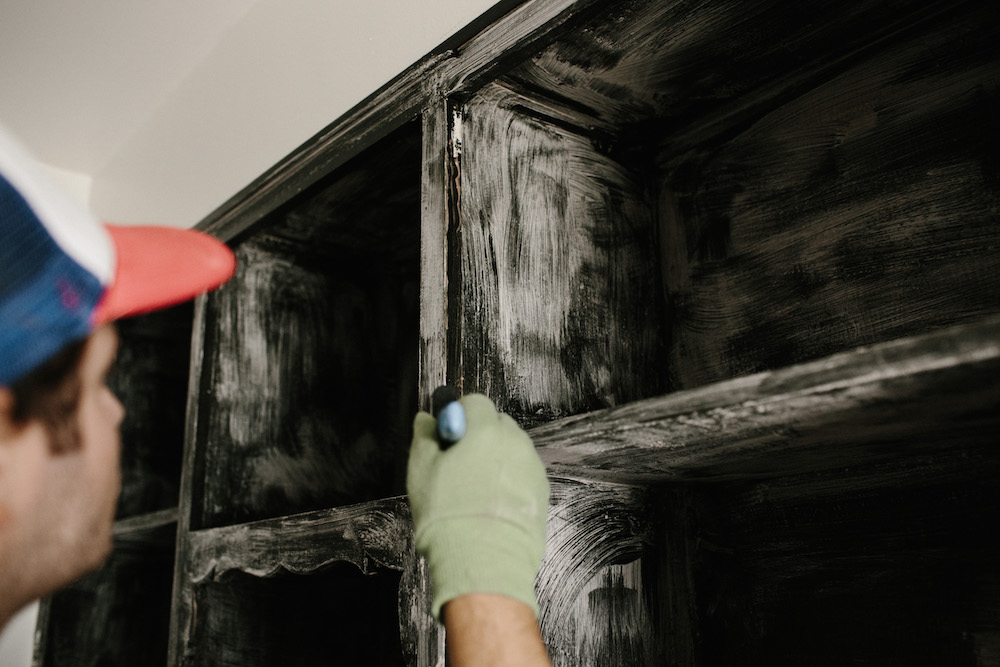Eric Miller & Elizabeth Schulz
Photo by FloraPine Photography
Headshots provided by Town & Country Credit Union
Making your house a home is an exciting, frustrating, fun and exhausting process. It seems like around every corner and behind every door there’s one more idea, whether it’s a small DIY project or a large remodel. With the seemingly endless projects, it might feel like some of those projects are out of reach due to financial concerns.
If you don’t have the cash on hand, there are many financing options available for projects, large and small.


Step 1. Determine how much money you’ll need to complete your project. This means getting estimates–either from a contractor or pricing out supplies from a store for your DIY project. It’s always a good idea to add some buffer room to the total you come up with. You never know when you’ll run into complications that can increase the cost of your project.
Step 2. Once you have your total project budget in mind, consider your financing options. There are four main options: a cash-out mortgage refinance, home equity loan, home equity line of credit or personal loan.
Cash-Out Mortgage Refinance
A cash-out mortgage refinance is a great option to finance large-scale remodel projects, such as an addition on your house or finishing a large basement. This type of loan allows you to take cash out from the equity you’ve built and typically allows for the longest repayment term out of all the options. With a cash-out refinance, you will receive the excess cash you’re borrowing up front to use as needed.
Home Equity Loan
A home equity loan lets you put all those mortgage payments you’ve been making over the years to work for you. The equity you’ve built up in your home is used as collateral to secure a second loan that you can use for remodel projects, landscaping or other purposes. This loan does require that you have enough equity in your home to support the total loan amount you’re requesting. It’s not necessarily ideal for new home buyers who utilized a low down payment option for their first mortgage. A home equity loan provides you with the total loan amount up front when you take out the loan to use however you wish. The repayment period typically begins the following month and the term can range from 60 to 240 months.
Home Equity Line of Credit
A home equity line of credit functions very similarly to a home equity loan with one important difference – it’s a line of credit so you only take out money when you need it and will only pay interest on the money you’ve advanced. The home equity line of credit is great for projects that will be happening over a longer period of time because it will save you interest in the beginning months of the project since you are only advancing what you need. It is also a good fit for those who just want to make sure they have excess funding. It is much more difficult to secure funding mid-project than if you set it up at the start. You only pay interest on the amount you use and you can typically access those funds for up to five to 10 years.

Personal Loan
Personal loans are great for smaller projects such as updating finishes or getting new flooring in your kitchen. This option typically has the fastest turnaround time for approvals and receiving the funds. There are two types: Secured and Unsecured.
A secured loan is a loan that uses a piece of collateral that you have equity in or own free and clear. For example: a car, boat or camper. An unsecured loan is one that does not require any collateral. The type of personal loan and amount you qualify for will depend on your credit score and other factors such as your debt to income ratio.
With so many options, you might not know where to start. If this statement rings true for you, it’s reassuring to know that a mortgage professional at your local financial institution can help you determine which financing option is the best fit for your project.
Town and Country Credit Union is an Equal Housing Lender federally insured by the NCUA.










